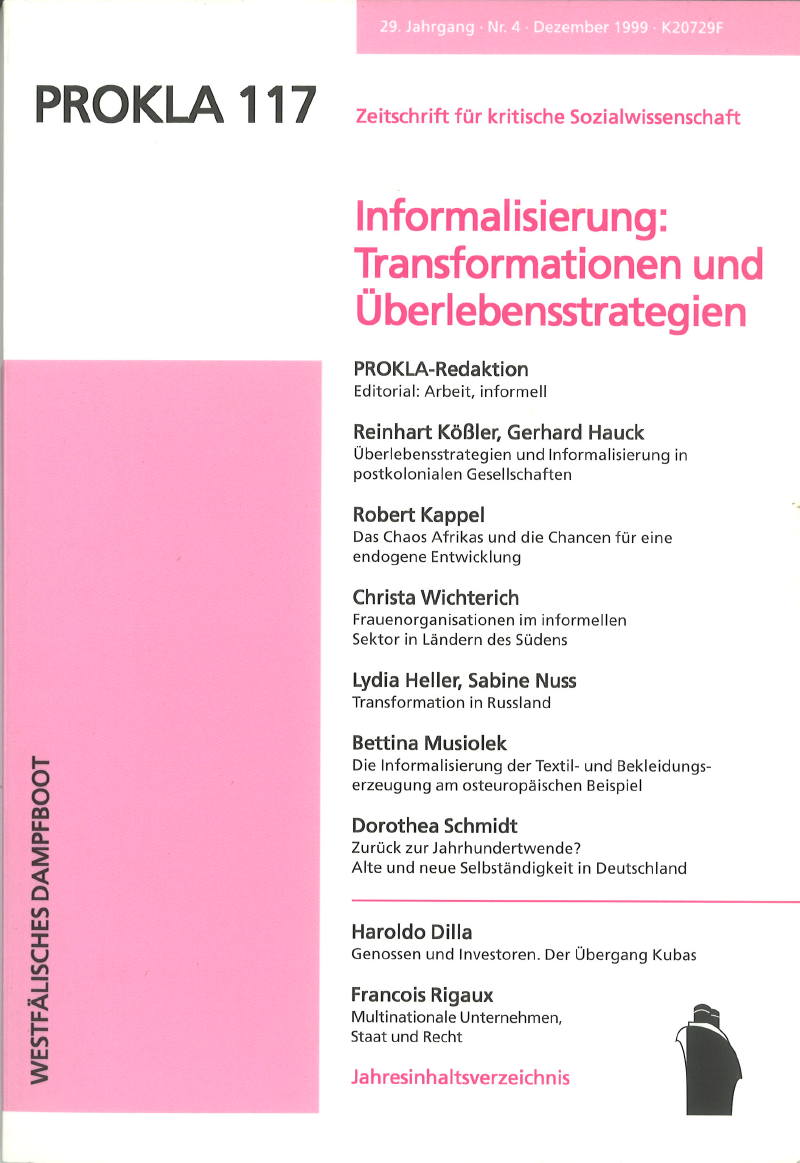Überlebensstrategien und Informalisierung in postkolonialen Gesellschaften
DOI:
https://doi.org/10.32387/prokla.v29i117.794Keywords:
Informalisierung, Postkolonialität, Informalität, Armut, Ökonomie, KriminalisierungAbstract
Informalisation processes are understood usefully in the contexts of various survival strategies, employed by the poor, especially under conditions of continuing deregulation. Far from presenting the panacea expected by informal sector enthusiasts, survival strategies are directed towards dealing with current crisis phenomena. In doing so, the spreading of risks, combining multiples avenues of economic gain and subsistence activites, turns out as adequate and rational. This rests not least on trust in terms of horizontal social relations, and on the exchange of loyality for protection in the vertical direction. While this entails traits of a moral, or (partially) embedded economy, such findings should not foster any romanticist conclusions. Rather, connections of informal economic and political activities with shadow economies and with processes of the criminalisation of state apparatuses point both to the modern content of informal relationships and to the severe risks they carry.






